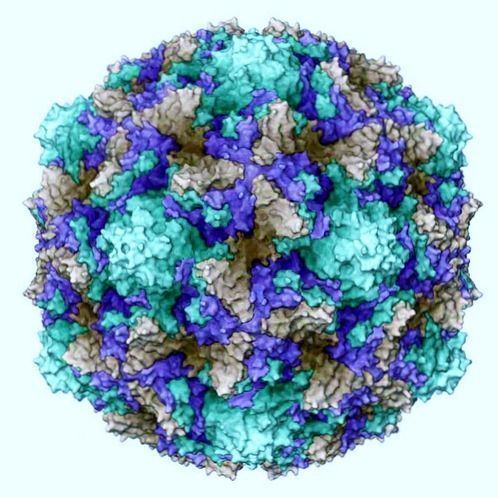Rheumatic diseases, 1 in 2 women fear motherhood
There are 3.5 million Italians with rheumatic diseases – “Giving birth to a child is certainly not a taboo, even in the presence of disabling diseases”. From the experts a strong call: a gender and multidisciplinary approach is needed, more information and support for expectant mothers, who should be aware of the possibility of pregnancy-compatible treatments, care supports and Gender Medicine Referral Centers with multidisciplinary expertise to follow the pregnancy of women with rheumatic diseases.
Rome, Oct. 29, 2018 – Fear of not being able to take care of their child due to the disease and fear that drug therapy may be harmful to the child (in 32% of cases), worry of transmitting their disease to the child (16% of cases): women with rheumatic diseases are negatively affected with respect to their desire for motherhood so much so that more than 1 in 2 (55%) are afraid of becoming a mother for these reasons.
About rheumatic diseases and pregnancy and the results of the survey conducted in 24 rheumatology referral centers throughout Italy, among 398 women with rheumatic diseases between the ages of 18 and 55, is being discussed today in Rome at the conference “The Health of Women with Chronic Rheumatic Diseases in Childbearing Age. The Value of Gender Medicine,” organized by HPS-AboutPharma and ONDA, National Observatory on Women’s Health and Gender, under the sponsorship of ANMAR – National Association of Rheumatic Patients, APMAR – National Association of People with Rheumatologic and Rare Diseases, GISEG – Italian Group of Health and Gender, Istituto Superiore di Sanità, SIDEMAST – Italian Society of Medical, Surgical, Aesthetic Dermatology and Sexually Transmitted Diseases, SIMG – Italian Society of General Medicine and Primary Care and SIR – Italian Society of Rheumatology, with the unconditional contribution of UCB Pharma.
The phenomenon is certainly not contained. In Italy, according to Istat, rheumatic diseases represent the most common chronic condition in the Italian population, affecting 5.5 million people; 2 out of 3 are women, as many as 3.5 million Italians dealing with these diseases.
“In the common imagination, rheumatic diseases are associated with old age, but we know that they prefer women and mostly occur at a young age, affecting the dream of being a mother,” argues Francesca Merzagora, ONDA President. “Several studies show that female hormones play an important role in the causes and development of rheumatic diseases. Especially in rheumatology, therefore, looking at the disease ‘female’ by implementing a gender approach is crucial: it can lead to better diagnosis and treatment and thus allow women to plan a safe family life.”.
Pregnancy and rheumatic diseases, such as rheumatoid arthritis, psoriatic arthritis, axial spondyloarthritis, systemic lupus erythematosus, and systemic sclerosis, affect each other, sometimes with positive effects and sometimes with negative effects. In fact, gestation can affect the course of the disease, which, in turn, if not well controlled, can cause various complications.
“The specialist has a fundamental role in this delicate time for women,” explains Angela Tincani, Full Professor of Rheumatology, University of Brescia and Coordinator Gender Medicine Group, SIR – Italian Society of Rheumatology. “Although not without risk, with careful medical and obstetrical management pregnancy can have a favorable outcome; however, it is necessary to schedule it during a period of stable remission of the disease. The preconception that appropriate treatment cannot be practiced in pregnancy should be debunked: there are medications that can be used in women with chronic inflammatory diseases before and during pregnancy and continued even during breastfeeding. Treatment must be managed and shared by rheumatologist and gynecologist”.
Unfortunately, for many years, women with rheumatic diseases were not informed about the possibility of facing pregnancy with confidence and were often advised against it. The lack of confrontation with the clinician and counseling on these issues also emerged from another survey result showing that as many as one-third of participants with rheumatic diseases, under diagnosis and treatment, stated that they had never been asked if they wished to have a child.
The call to bridge this information gap between clinician and patient comes from the patient associations ANMAR and APMAR, which call for more and timely communication from the clinician to the woman with rheumatic disease and adequate psychological support before the decision to become a mother, during pregnancy, and after delivery, to clarify doubts and alleviate fears and to be informed about compatibility with current therapy. They also highlight the need for greater protection for women who decide to become pregnant since, from a regulatory point of view, there are no additional protections beyond those generally recognized for all women and these are totally inadequate in the presence of rheumatic disease.
Effective doctor-patient communication, including regarding the availability of pregnancy-compatible therapies, a multidisciplinary approach that offers support to women, proper information to the entire population, training to general practitioners for early diagnosis, caregiver-type supports for new mothers, increased attention by clinicians and institutions to the value of the gender approach in rheumatology to the establishment on a regional basis of Gender Medicine Referral Centers with multidisciplinary expertise to follow the pregnancy of women with rheumatic diseases: these are some of the necessary actions to be taken for better management and protection of women with these diseases in childbearing age, according to a group of multidisciplinary experts, clinicians, psychologists, institutional representatives and patients, authors of a consensus paper presented today and authored by HPS-AboutPharma with an unconditional contribution from UCB Pharma. While highlighting the main critical issues in the treatment pathway, the document shows that “with the prerequisite of proper diagnostic framing, appropriate care and targeted therapies, bringing a child into the world is certainly not taboo, even in the presence of disabling conditions.”.
“It is now well established and supported by scientific evidence that gender medicine is a new frontier for better therapeutic appropriateness in certain diseases,” says Senator Paola Boldrini, Member XII Permanent Committee on Hygiene and Health, Senate of the Republic. “Among these certainly rheumatic diseases open a challenge to the application of gender medicine especially in the particular condition of childbearing age in which many women encounter the disease and who desire pregnancy. It is therefore necessary that the decrees provided for in Art. 1 and 3 of Law 3/2018, which provide for its implementation, be approved as soon as possible precisely so that a diagnostic therapeutic approach aimed at appropriateness of care can be disseminated to all health professionals.”.

